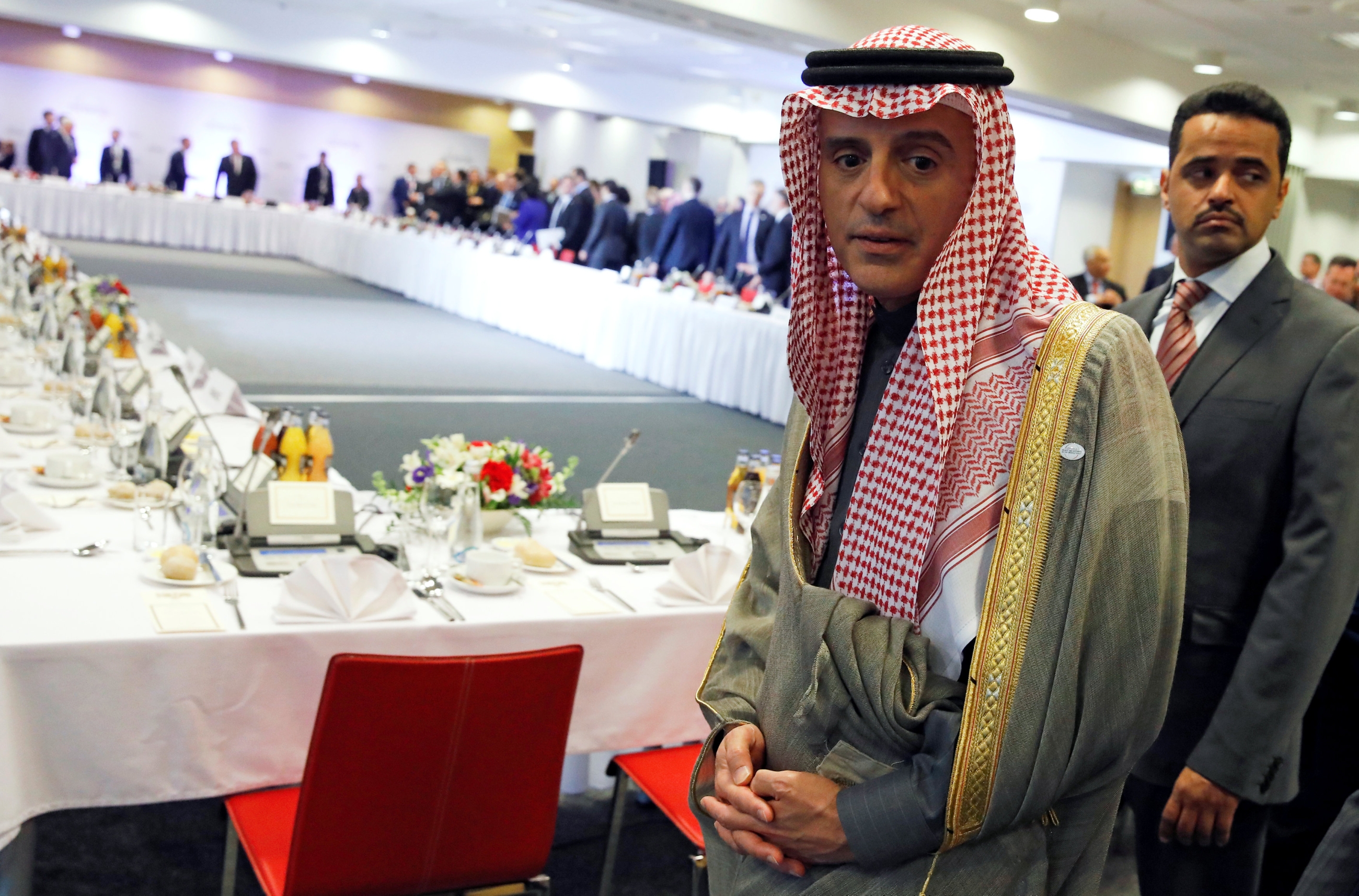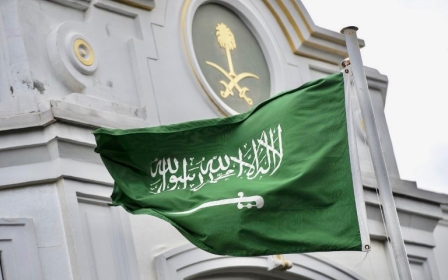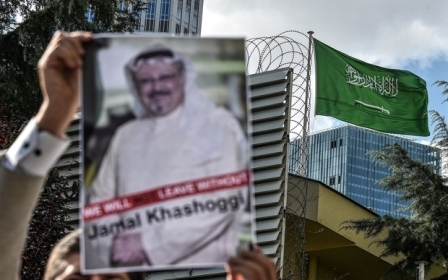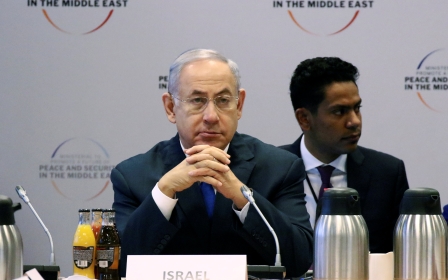Saudi Arabia's Jubeir condemns Iran for willingness to plot assassinations

Saudi Arabia's minister of state for foreign affairs has accused Iran of using assassinations to advance its policies, attempting to draw a contrast between the Gulf kingdom and the Islamic Republic.
Adel al-Jubeir's comments come less than five months after the assassination of journalist Jamal Khashoggi at the Saudi consulate in Istanbul.
"This regime has no morals. They have no problem assassinating diplomats and blowing up embassies. We don't do this," Jubeir said on Thursday at an anti-Iran conference in Warsaw, according to a video leaked by Israel National News.
Jubeir was Saudi Arabia's top diplomat in October of last year, when government agents murdered Washington Post columnist Khashoggi at the consulate in Istanbul.
He was demoted from his post as the Saudi foreign minister amid the international outcry against the assassination and widespread calls for accountability.
The CIA has concluded that Saudi Crown Prince Mohammed bin Salman ordered Khashoggi's murder.
Saudi officials have denied bin Salman was involved, however, while Jubeir has repeatedly said that accusations against the crown prince constitute a "red line" for the kingdom.
Speaking on an off-the-record panel alongside Bahraini Foreign Minister Khalid bin Ahmed Al Khalifa and his Emirati counterpart, Abdullah bin Zayed Al Nahyan, Jubeir on Thursday blamed Iran for the ills of the region.
"Who's destabilising Lebanon? Iran through Hezbollah," Jubeir said.
Lebanon recently formed a new government headed by Prime Minister Saad Hariri, who was kidnapped and forced to resign by the Saudi government in late 2017, according to Western diplomats and US lawmakers.
Jubeir was the kingdom's foreign minister at the time.
'Most toxic' challenge
US Secretary of State Mike Pompeo led efforts to organise the international conference in the Polish capital this week, which was also attended by Israeli Prime Minister Benjamin Netanyahu.
On Wednesday, Netanyahu hailed the summit as evidence of burgeoning ties between Israel and Arab countries, which he said were united in their shared goal of combating Iran.
For his part, Bahrain's foreign minister called Iran the "most toxic" challenge in the history of the region, saying that confronting Tehran has become more important than solving the Israeli-Palestinian conflict.
'If it wasn't for the toxic money, guns and foot soldiers of the Islamic Republic, I think we would have been much closer today to solving this issue with Israel'
- Khalid bin Ahmed Al Khalifa, Bahraini foreign minister
"When it comes to Palestine and Israel, we had processes," Khalifa said, citing the Camp David agreement that led to a peace treaty between Egypt and Israel in 1978 and the 1991 Madrid talks between Israel and neighbouring Arab countries.
He went on to blame Iran for the failure to find a solution to the conflict, failing to mention Israel's ongoing settlement expansion in the occupied Palestinian territories, which led to the collapse of the last round of peace talks in 2014.
"If it wasn't for the toxic money, guns and foot soldiers of the Islamic Republic, I think we would have been much closer today to solving this issue with Israel," Khalifa said.
The top Bahraini diplomat told the Times of Israel earlier on Thursday that Manama will "eventually" have diplomatic relations with Israel.
Senior Israeli ministers, as well as Netanyahu, have made official visits to several Gulf states in recent months, including Oman and the United Arab Emirates.
Promoting better relations between Israel and Arab countries in the region has been an objective of President Donald Trump's US administration.
Iran was sanctioned by the European Union in January over alleged plots to kill opponents in the Netherlands, Denmark and France, including two assassinations of dissidents, one in 2015 and one in 2017.
An alleged plot in Denmark against three Iranians suspected of being members of the militant Arab Struggle Movement for the Liberation of Ahvaz led to the closure of bridges to Sweden and the halting of ferries in September.
France also accused Iranian intelligence of ordering a bomb attack on a rally of the People's Mujahedeen of Iran (MEK) opposition group in Paris in June. Iran strongly denied that accusation.
Middle East Eye delivers independent and unrivalled coverage and analysis of the Middle East, North Africa and beyond. To learn more about republishing this content and the associated fees, please fill out this form. More about MEE can be found here.




